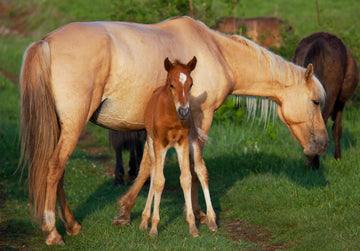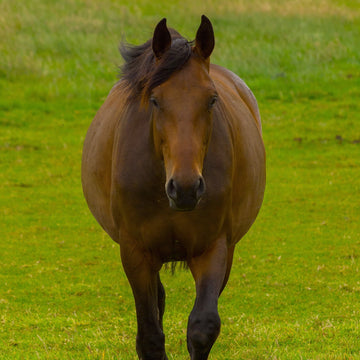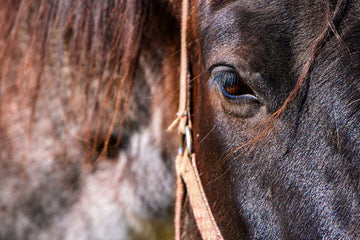The body condition (BC) of mares can undoubtedly affect their reproductive efficiency. To achieve maximum efficiency, mares should be maintained at an adequate body condition (a score of 5 to 6 on the Henneke Scale – a scale from 1 to 9, where 1 is thin/very poor condition and 9 is obese/excessive condition).
Scientific research has shown that mares kept in adequate body condition ovulate earlier and have shorter foaling-to-conception intervals.
Thin mares
Mares that enter the reproductive phase underweight, regardless of whether they are being fed enough energy to gain weight, are less reproductively efficient than those in adequate body condition.
Overweight mares
At the other end of the spectrum, mares with excessive body condition appear to remain reproductively efficient. However, this does not mean it is desirable, given the reduction of intrauterine space, which does not favor fetal development, as well as the metabolic problems associated with obesity (common to all horses).
Group dynamics
Since broodmares are usually kept in group settings, evaluating group dynamics may be relevant. More submissive mares may struggle to feed due to pressure from dominant individuals. If excessive dominance is observed, it may be better to separate some mares to ensure that the thinner ones can feed properly.
As with any other horse, a thin mare that does not improve her body condition despite being fed accordingly should be evaluated by a veterinarian, as there may be an underlying health issue preventing weight gain.


